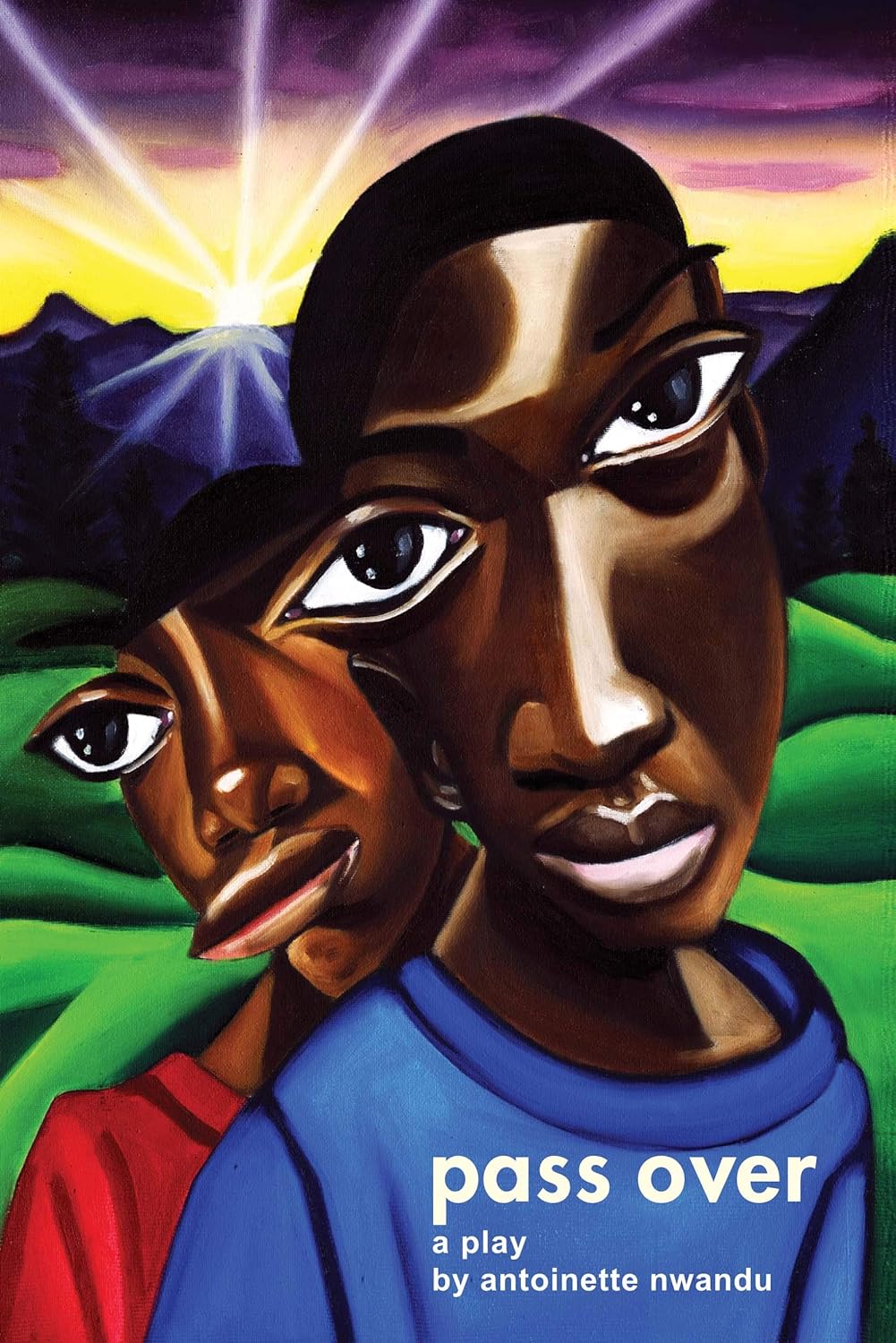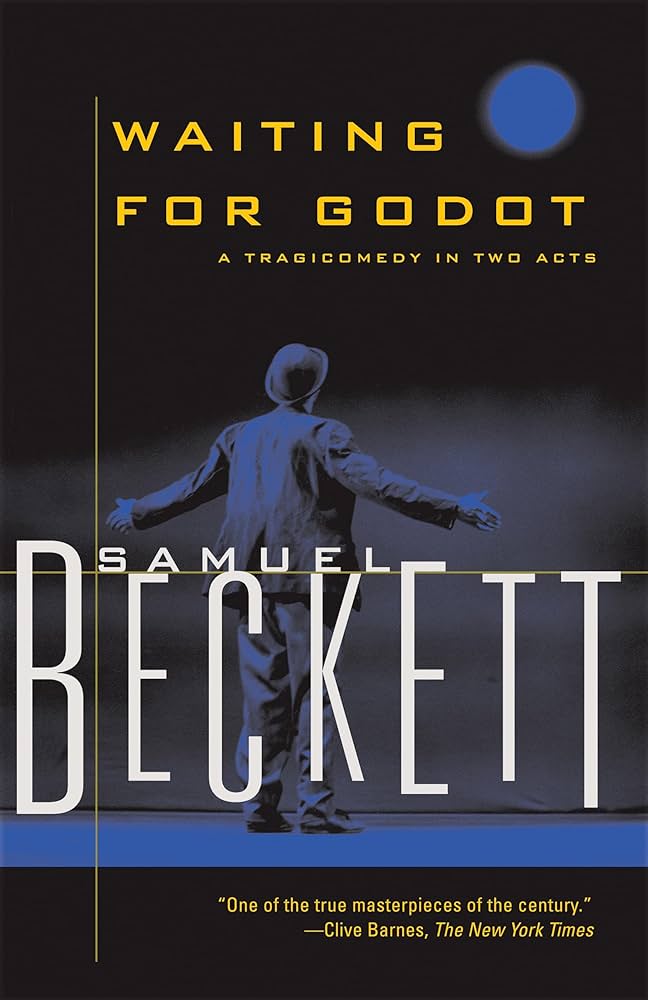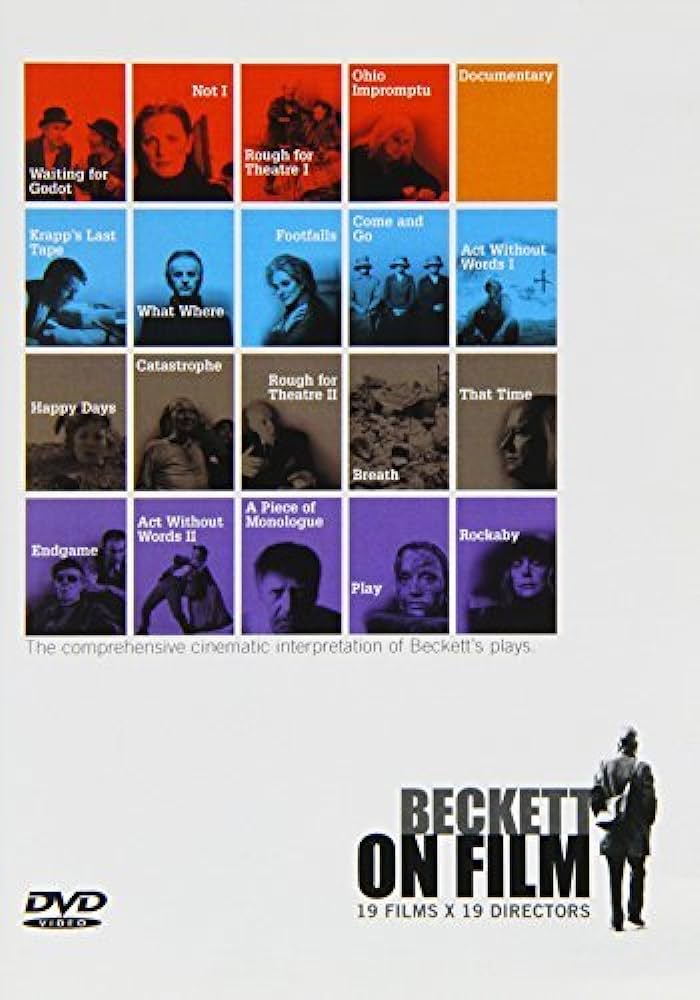70 Years of Waiting: Happy Birthday, Godot
Posted on February 8, 2024
by Eric P
Samuel Beckett’s groundbreaking play Waiting For Godot saw its first publication in English in 1954, exactly 70 years ago. It’s one of those iconic cultural products that more people have heard about than read, so in observation of its seventieth birthday this would be a good time to experience the play in which, it’s often said, nothing happens – twice.
Beckett strove for a minimalism that made Hemingway look flamboyant. He envied musical composers who, he said wistfully, weren’t condemned to explicitness. As his career went on, his writing for the theater got sparer and sparer. His already modest cast sizes got smaller and smaller. He hid his actors in trash cans or half-buried them in the dirt. He cast Krapp’s Last Tape with only one actor and a tape recorder. Soon he was writing plays to be performed by specific body parts. His play Breath is about 35 seconds long and features no actors at all.
Compared to these later works, Waiting for Godot is positively expansive: two acts, four guys, one boy, and a tree. In it, two beleaguered itinerants wait for a mutual acquaintance to arrive. Spoiler alert: he never does. But in the space created by that waiting, Beckett plays language games, indulges in vaudevillian slapstick, philosophizes, and oscillates between comedy and despair.
The original cast included seasoned vaudevillian (and Cowardly Lion) Bert Lahr. Other actors who’ve tackled the show through the years include Zero Mostel, Robin Williams, Steve Martin, Ian McKellan, Patrick Stewart, Nathan Lane, Ethan Hawke, Mel Gibson, and – in a successful Off-Broadway run that only just recently ended – Michael Shannon. Beckett’s a stubbornly singular original – if you haven’t encountered his dramatic writings before, they’re worth a look.
Waiting for Godot has also been wildly influential. Its fundamental structure – two dudes are acted upon by the world, or not, while they wait for something – has been explicitly invoked in other classic plays like Rosencrantz and Guildenstern Are Dead and Pass Over. Its philosophical outlook has been echoed in the work of successive playwrights like Will Eno. Its deployment of nothingness as a dramatic strategy has emerged in unlikely descendants like the Chinese restaurant episode of Seinfeld. (“They think they’re doing Samuel Beckett instead of a sitcom,” groused Roseanne Barr about the Seinfeld cast in a studio parking space dispute that, itself, came vanishingly close to being nothing.) And Beckett even got parodied in an It’s Always Sunny in Philadelphia episode. Which is at least as cool as winning the Nobel.
Seinfeld

It’s Always Sunny in Philadelphia

Did you like this blog post? Keep up to date with all of our posts by subscribing to the Library’s newsletters!
Keep your reading list updated with our book lists. Our staff love to read and they’ll give you the scoop on new tv-series inspired titles, hobbies, educational resources, pop culture, current events, and more!
Looking for more great titles? Get personalized recommendations from our librarians with this simple form.



